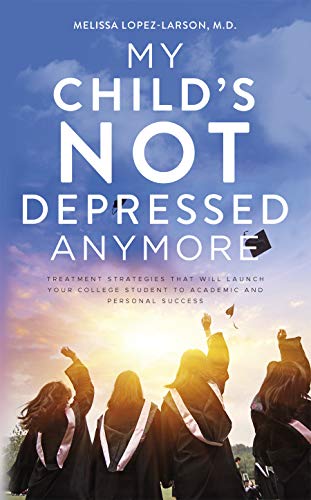Now offering in-person sessions in Cleveland and Park City, as well as telepsychiatry in 5 states
New York, Pennsylvania, Ohio, Utah and California
DR. MELISSA’S INTEGRATIVE PSYCHIATRIC PRACTICE
Welcome to Dr. Melissa’s Integrative Psychiatric Practice. We specialize in the holistic treatment of individuals, including children, adolescents, and adults, using multiple evidence-based healing modalities. We provide a comprehensive approach to mental health, incorporating diet, exercise, sleep management, meditation, and vitamins/supplements, in addition to traditional therapies, medications, ketamine, and transcranial magnetic stimulation (TMS).


Melissa Lopez-Larson, MD is an adult, child and adolescent Psychiatrist and received her M.D. from the University of Cincinnati School of Medicine. Dr. Lopez-Larson performed her adult and child psychiatry training at Harvard Medical School training sites including Massachusetts General Hospital/McLean Hospital and Cambridge Hospital, respectively.
Her unique skill set has resulted in the establishment of a practice that combines classic psychiatric services with evidence-based complementary treatments such as Transcranial Magnetic Stimulation (TMS), Ketamine-psychotherapy, supplements, nutrition, meditation and other modalities, to provide an individual with a holistic approach to the treatment of mental health related issues. Want to know more about Dr. Melissa’s Integrative Psychiatric Practice?
OFFERING ADVANCED AND INTEGRATIVE SOLUTIONS FOR MENTAL HEALTH

PSYCHIATRIC SERVICES Tap to learn more
Dr. Lopez-Larson has expertise in the treatment of mood and anxiety disorders in both youth and adult populations. She offers psychiatric services and provide the best approach.
Psychiatric Services
Integrated Services Tap to learn more
Dr. Melissa goes in-depth on holistic approaches to mental health, emphasizing nutrition, sleep, exercise, and mind-body practices for well-being and stress reduction.
Integrated Services
TMS TREATMENT Tap to learn more
Dr. Melissa is a member of the Clinical TMS Society and opened a new Transcranial Magnetic Stimulation (TMS) specialty clinic in direct response to the need for increased access to care.
TMS
KETAMINE ASSISTED PSYCHOTHERAPY Tap to learn more
Ketamine is a popular anesthetic that has been used for several decades for surgeries and in emergency rooms for pain management.
KAPGIFTS FOR YOU
Discover Dr. Lopez-Larson’s Literary Works
Dr. Melissa offers parents and caregivers two essential books equipped with the tools to support their children in managing their mental well-being. Download Dr. Lopez-Larson’s empowering books today, and embark on a transformative path towards success and fulfillment.

My Child’s Not Depressed Anymore
This book will give you the tools that you need to help get your college student back on track.


The Confident Parent
Gain confidence in understanding your child’s developmental challenges and learn strategies for tackling them head on.

HEAR FROM OUR PATIENTS

